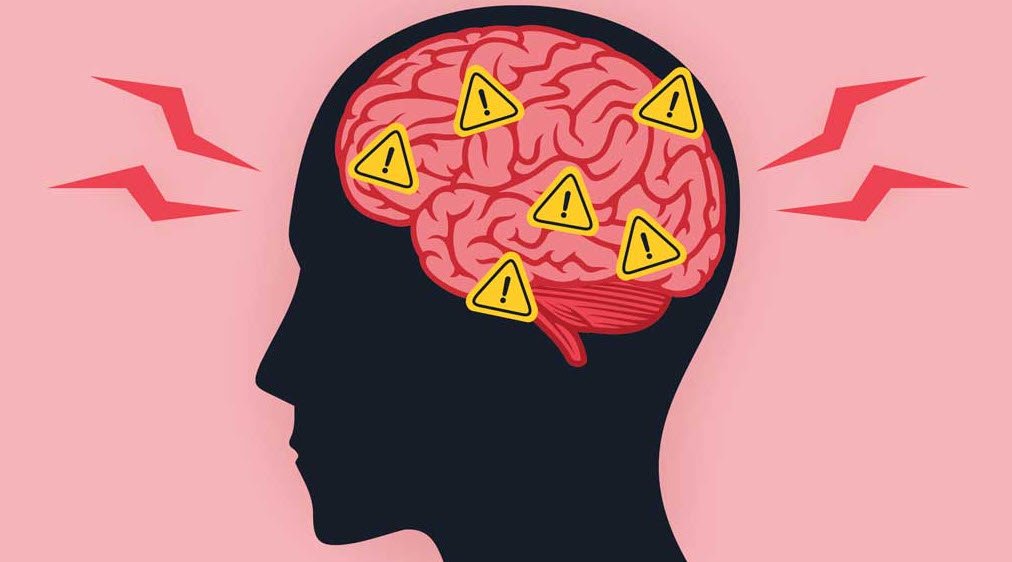
The brain is a sophisticated organ that manages every bodily function as well as thought, memory, emotion, touch, motor skills, vision, respiration, temperature, and hunger. The central nervous system, or CNS, is made up of the spinal cord that emerges from the brain.With more than 100 billion nerve cells (neurons) and trillions of connections (synapses) connecting them, the brain is the most complicated organ in the human body. All physical processes, including movement, sensation, thinking, and emotion, are under its direction and coordination.
The cerebral cortex, the cerebellum, the brainstem, and the hippocampus are just a few examples of the numerous parts of the brain, each with a distinct purpose. The brain’s cells communicate with one another through both chemical and electrical impulses. Through experiences and education, it can also adapt and alter (neuroplasticity). Many different neurological and cognitive diseases can be brought on by brain damage.
- The Pratfall Effect
- The Pygmalion Effect
- The Paradox Of Choice
- The Bystander Effect
- The Spotlight Effect
- The Focusing Effect
1) The Pratfall Effect
Even in comparison to those who are more brilliant, people are deemed to be more likable when they make a mistake or act in a way that can even make people laugh. Making mistakes makes you seem more relatable, human, and hence more likable to other people. Perfect people can appear dangerous, but those who are flawed are safe and hence simpler to genuinely appreciate.
According to the Pratfall Effect, people who make mistakes or have imperfections are seen as more likable and beautiful by others. It implies that having flaws and being human can help someone be more likable and appealing.

According to studies, people are more trusted and competent when they exhibit vulnerability or make mistakes.
2) The Pygmalion Effect
According to the Pygmalion effect, situations where high expectations result in better performance and low expectations result in worse performance. The Pygmalion effect was first noted in the classroom, but it has also been used in the management, business, and sports psychology disciplines.

A phenomenon known as the Pygmalion Effect shows that higher expectations result in better performance. It implies that people are more likely to live up to expectations when they are given optimistic ones or informed they are capable of attaining something. Conversely, it is also true that people are less likely to do well if their expectations are too low. This effect has been noted in several contexts, including the workplace, sports, and education. It serves as a reminder of the influence of expectations and the value of fostering an environment that is encouraging and supportive of people’s success.
3) The Paradox Of Choice
According to the paradox of choice, while we might think that having a lot of options makes it simpler to choose one that we like and hence boosts customer happiness, having a lot of options makes it harder to decide and can make us feel unsatisfied with our choice.
According to the paradox of choice theory, feeling anxious and unsatisfied might result from having too many options. It claims that the more options we have, the more difficult it is to choose, and the more regret we are likely to feel. This may result in feelings of doubt, worry, and discontent with our decisions. It’s also recognized that having too many options can result in “analysis paralysis,” a condition when people feel overwhelmed and unable to decide.
4) The Bystander Effect
The inability to aid someone in need when others are around is known as the “bystander effect.” According to research, even in an emergency, a bystander is less likely to offer assistance when they are physically or mentally surrounded by people than when they are alone.
The phenomenon known as the “Bystander Effect” describes how people are less likely to assist someone who is in need when other people are around. This is because people are less likely to take action when other people are around since their sense of personal responsibility is diminished. Numerous bystanders decrease the likelihood that any one of them will step in, according to studies. The Bystander Effect emphasizes the value of individual accountability and the part societal norms play in determining conduct.
5) The Spotlight Effect
Social psychologists refer to the tendency we have to overestimate how much other people notice about us as the spotlight effect. In other words, we frequently believe that a spotlight is always shining on us, exposing all of our defects or errors for everyone to see.

The Spotlight Effect is the propensity for people to overestimate the level of attention and notice that others give to their actions, looks, and behavior. Self-consciousness, anxiety, and embarrassment may result from this consequence. According to studies, people frequently assume that others are giving them more attention than they are. This can be especially obvious in social circumstances where people feel self-conscious about their looks or behavior. It serves as a reminder that people are more preoccupied with their behavior than that others.
6) The Focusing Effect
When making a decision, people frequently focus too much on a single piece of information, which distorts their perception of the situation (a phenomenon known as the Focusing Effect). This is because people frequently disregard other facts and instead concentrate on a specific component of a scenario.
Poor judgment and irrational decisions may result from this consequence. It serves as a reminder that while making decisions, it’s crucial to take into account all the facts at hand and avoid becoming fixated on any particular piece of information.
You may also read:
- Nourishing Passion – Specific Foods to Promote Sexual Health
- The Power of Compound Exercises – 5 Essential Moves for Full-Body Strength
- 11 Powerful Poses to Help You Shed Pounds
- Cold Water vs. Hot Water – A Comparison of Health Benefits
- The 6-Day Total Body Workout Routine
- Essential Post-Workout Stretches for a Better Recovery
- Yoga Mudras and Their Positive Effects on Health
- 6 Quick Morning Workouts You Can Do at Home
- Breathing Exercises To Increase Oxygen Levels And Fight Stress
- 5 Yoga Poses For Better Bone Health








